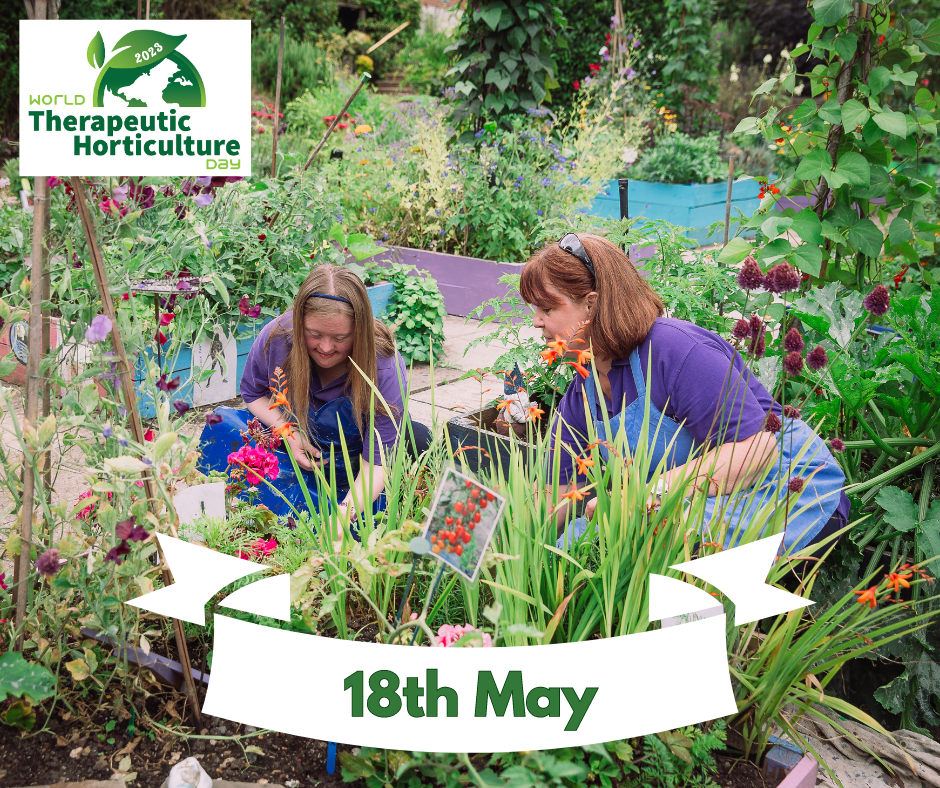Join Us for a Global Celebration of ‘World Therapeutic Horticulture Day’ on May 18!
go.ncsu.edu/readext?936575
en Español / em Português
El inglés es el idioma de control de esta página. En la medida en que haya algún conflicto entre la traducción al inglés y la traducción, el inglés prevalece.
Al hacer clic en el enlace de traducción se activa un servicio de traducción gratuito para convertir la página al español. Al igual que con cualquier traducción por Internet, la conversión no es sensible al contexto y puede que no traduzca el texto en su significado original. NC State Extension no garantiza la exactitud del texto traducido. Por favor, tenga en cuenta que algunas aplicaciones y/o servicios pueden no funcionar como se espera cuando se traducen.
Português
Inglês é o idioma de controle desta página. Na medida que haja algum conflito entre o texto original em Inglês e a tradução, o Inglês prevalece.
Ao clicar no link de tradução, um serviço gratuito de tradução será ativado para converter a página para o Português. Como em qualquer tradução pela internet, a conversão não é sensivel ao contexto e pode não ocorrer a tradução para o significado orginal. O serviço de Extensão da Carolina do Norte (NC State Extension) não garante a exatidão do texto traduzido. Por favor, observe que algumas funções ou serviços podem não funcionar como esperado após a tradução.
English
English is the controlling language of this page. To the extent there is any conflict between the English text and the translation, English controls.
Clicking on the translation link activates a free translation service to convert the page to Spanish. As with any Internet translation, the conversion is not context-sensitive and may not translate the text to its original meaning. NC State Extension does not guarantee the accuracy of the translated text. Please note that some applications and/or services may not function as expected when translated.
Collapse ▲
Join us for a global celebration of ‘World Therapeutic Horticulture Day’ on the 18th of May. The day is dedicated to highlighting the many therapeutic benefits of horticulture and gardening, such as improved mental and physical health, as well as their positive impacts on the environment.
Did you know? Therapeutic horticulture is a practice that embraces the healing power of nature to promote physical and emotional well-being. It involves using plants, gardens, and cultivating a sense of connection with nature to help people improve their health, well-being, and quality of life.
There are many reasons to celebrate therapeutic horticulture. First and foremost, it has been shown by over 30 years of research evidence to be an effective approach to help people deal with a wide range of physical and mental health conditions, including anxiety, depression, and chronic pain. It can also help people improve social skills, reduce stress and anxiety, and increase self-esteem.
Moreover, therapeutic horticulture is a sustainable approach to healthcare that also has a positive impact on the environment. It promotes the responsible use of natural resources and encourages the cultivation of plants that provide various benefits, such as cleaner air and water.
Therapeutic horticulture is practiced in a variety of settings, including hospitals, rehabilitation centers, schools, care homes and community gardens. This makes it a versatile therapy that can be tailored to help people in a whole range of ways.
The role and value of therapeutic horticulture practitioners cannot be underestimated – they are highly skilled, vital allies to health and care professionals.
Therapeutic horticulture is a valuable practice that has a positive impact on both people and the environment. It provides a natural, sustainable, and effective approach to healthcare that deserves to be celebrated and promoted.


